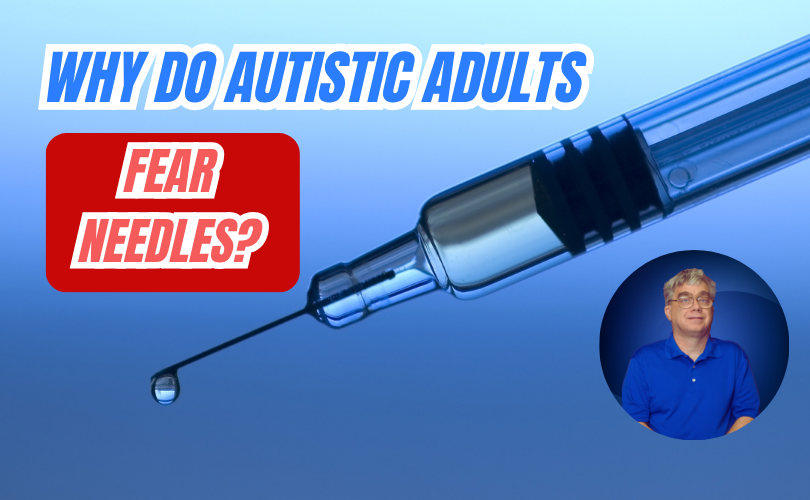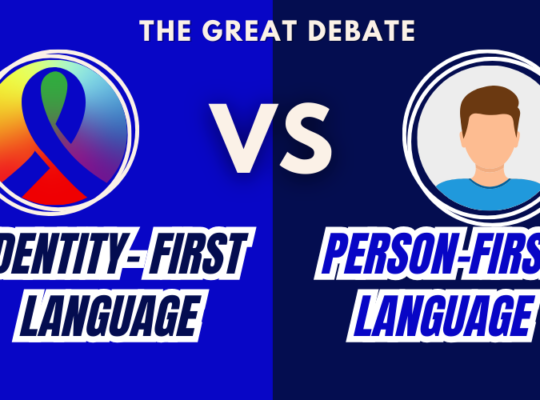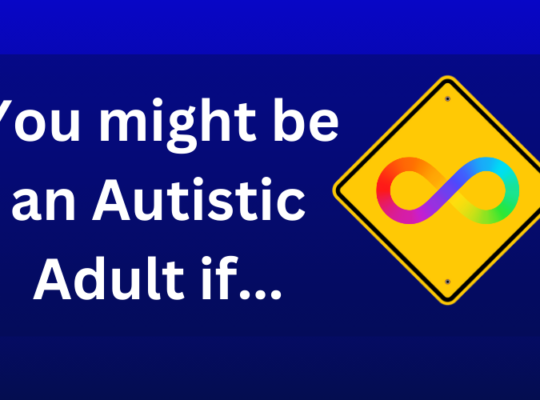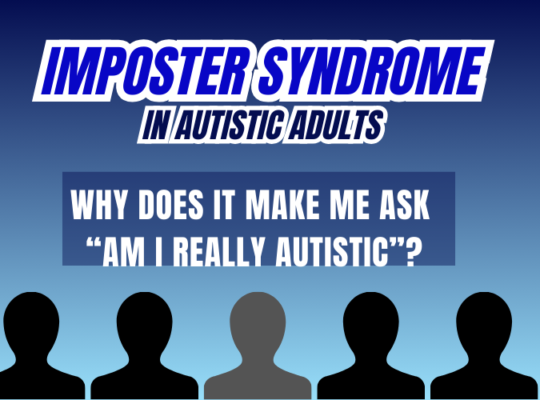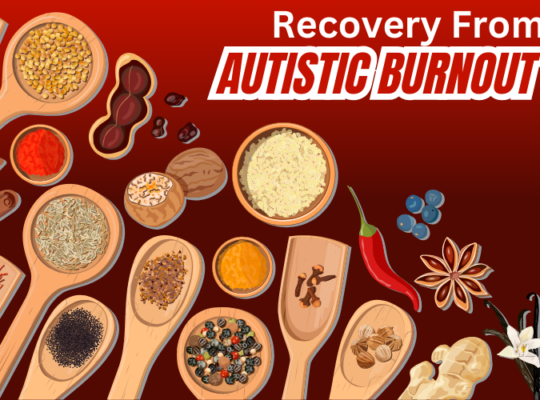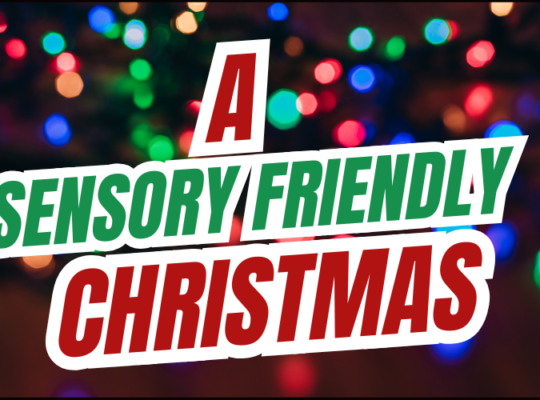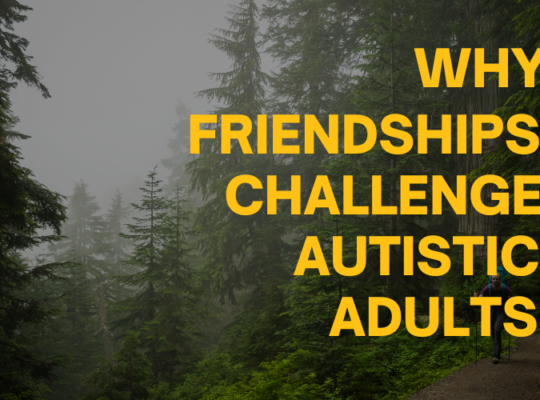The fear of needles is known as trypanophobia and for Autistic adults, trypanophobia can be significantly more intense than for our allistic peers. Our fear of needles is greater due to a combination of neurological, sensory, and emotional factors.
Let’s take a deeper look into what causes Autistics like you and me to fear the dead needle at doctors’ offices, hospitals and even at a tattoo parlor.
Sensory Sensitivities.
As Autistic adults, we often experience heightened or atypical sensory processing which causes the thought or sight of a needle to trigger the following:
- Anticipatory discomfort – Even thinking about the sensation can cause distress well before the needle is even seen or touched.
- Tactile sensitivity – The sensation of the needle piercing the skin can feel overwhelmingly intense or even painful beyond what a neurotypical person might experience.
- Environmental sensory overload – Bright lights, smells (e.g., antiseptics), and sounds in medical settings can add to the distress and make the needle experience worse.
Our difficulty with unpredictably and/or our feeling of a loss of control.
For many of us on the spectrum, we thrive with structure and predictability in our lives. When we are undergoing a medical procedure, predictability and structure often do not exist as procedures often involve
- Unclear steps or unclear communication
- An unknown level of pain or discomfort
- A sense of vulnerability or loss of autonomy
This unpredictability can escalate anxiety and resistance toward getting an injection or blood draw.
Heightened Anxiety or Trauma
Co-occurring anxiety disorder is not uncommon for many Autistic adults which only intensifies our fear. Regardless of if you experience a co-occurring anxiety disorder or not, past negative experiences with needles (especially if restraint or force was used) often can result in a lasting trauma which can lead to increased fear with future procedures.
Communication challenges
Many Autistic adults may struggle with expressing fears or discomfort effectively – regardless of what causes the fear.
When an Autistic adult is not properly prepared for a procedure that involves needles, or has not received clear communication from the medical professional, we may feel confused, panicked, or even unsafe.
When this occurs, medical professionals may misinterpret our reluctance to any procedure that includes needles as defiance or non-compliance, leading us to experience a rushed or unsympathetic procedure.
Trust and consent issues
Unfortunately, some of us Autistic adults have experienced medical procedures without either a full understanding of the procedure and/or giving proper consent, especially during our childhood.
These experiences can foster a lasting sense of distrust towards medical professionals or procedures involving needles.
Rigid thinking or specific phobias
Some of us on the spectrum may develop intense, specific phobias which causes us to have a harder time rationalizing or reframing these fears.
In some cases, a fear of contamination, infection, or medical harm can be part of a broader anxiety profile or linked to OCD-like tendencies.
If you are an Autistic adult who has an extreme fear of needles, try to work with providers who have experience with Autism and can/will provide sensory accommodations.

